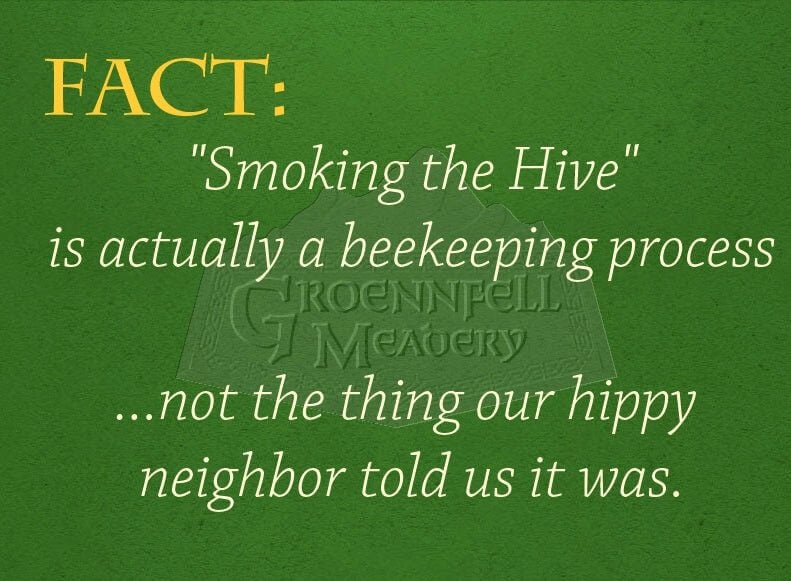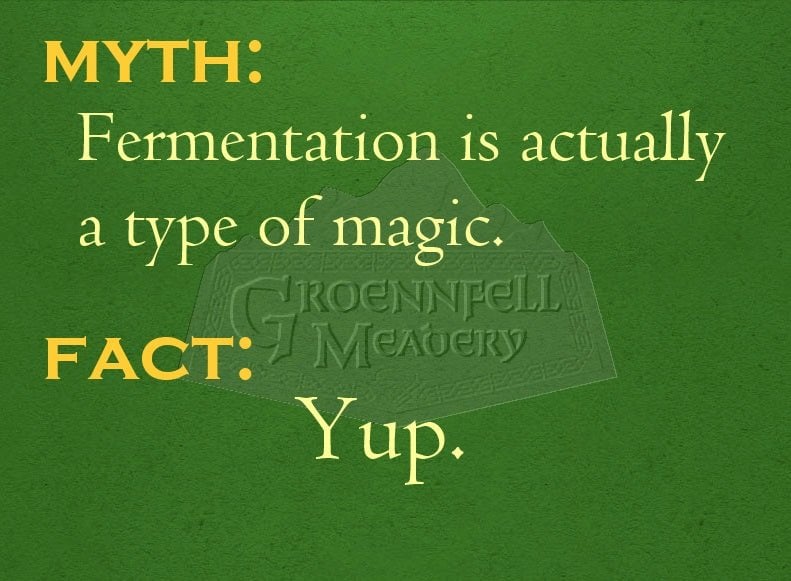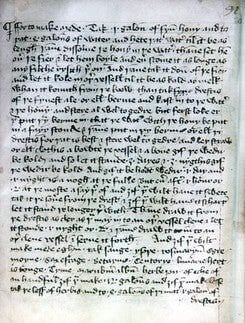Meadmakers are not alone; vintners have the same problem. Find an old recipe for wine and it usually reads: Crush grapes, remove skins, wait. Does this mean that there is nothing to be found in the annals of mead history? Absolutely not! Why? Because: Metheglins. That’s why.
A metheglin is a mead which contains herbs and spices in addition to honey, water, and yeast. It is often claimed that this beverage, once touted for its healing virtues, gave rise to our term medicine. This is not true. Medicine comes from the Latin word medecina which meant, ummmm, medicine. And all that without some undocumented application of Grimm’s Law… But we digress.
Old metheglin recipes are awesome! They call for things like bog myrtle and mugwort. Or, our favorite actual recipe: “Put in one good handful of Strawberry-leaves, and half a handful of Violet leaves; and half as much Sorrel: a Douzen tops of Rosemary; four or five tops of Baulme-leaves: a handful of Harts-tongue, and a handful of Liver-worth; a little Thyme, and a little Red-sage.” Not only does it contain great ingredients, it also has great measurements: “a little,” “a good handful,” and “four or five tops.”
And from whence did we dig this absolute gem of a recipe? From our dearest friend, Sir Kenelm Digby. In addition to having a name that belongs in a PG Wodehouse novel, this polymathic gentleman took it upon himself to record 106 pages worth of mead and metheglin recipes in a text which was eventually published as, The Closet of Sir Kenelm Digby Opened. It can be enjoyed in its entirety Here.
This text is an absolutely fascinating look into the pantry of a 17th century lord. Every page is a delight, from the first recipe which discusses the skimming of the wax off must, to the end of the book which explains how a concoction of borage, bugloss, and marigolds, “suffereth not the heart to burn, nor melancholly, nor the Spleen to be lifted up above nature.”
So, as you can see, there is plenty that the modern meadmaker can learn from ancient mead texts. Not only do brewers not have all the fun, but their spleens are probably lifted up above nature. Serves ‘em right, too.










